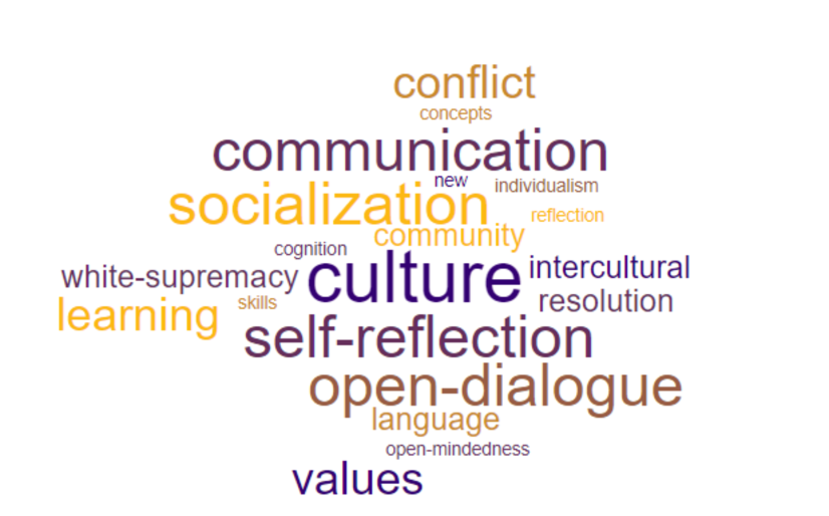We use cookies on this site to enhance your experience.
By selecting “Accept” and continuing to use this website, you consent to the use of cookies.

Laurier International Cultural Conversations (LICC) allow for students from diverse backgrounds to converse and discuss different ideas related to culture. I enjoyed the experience from a social standpoint because I was able to spend time getting to know new people, but also from a more cognitive standpoint, because it required me to critically reflect on my own beliefs, behaviours, and experiences, and how my culture has influenced these. I have identified three intersecting concepts which I believe summarize my experience with the LICC sessions and are furthermore key components of strong intercultural communication: socialization, open dialogue, and self-reflection.
Socialization refers to the process by which we learn the behaviours, expectations, and norms of our society. It is essentially learning what is considered acceptable in one’s society. Socialization can differ heavily between cultures, and thus serve as a barrier in intercultural interactions. During the LICC sessions, I was made aware of the parts of myself that are products of my white-Canadian socialization, such as my individualist mindset and my fear of conflict. Realizing that these are not universal traits provides me with a deeper understanding of other people and other cultures, and how their socialization differs from my own.

Open dialogue is an important aspect of all communication, but especially in multicultural contexts. You have to learn to be comfortable with being wrong or being in disagreement, and to speak honestly while maintaining a respectful attitude. My LICC group agreed that one of the reasons that we were able to have such engaging conversations was that everyone kept an open mind while being genuinely curious about each other’s cultures. Language barriers can definitely pose a challenge, as well as general cultural barriers, but creating an open dialogue is really important to fostering an impactful intercultural experience.
Self-reflection is not only a required component of the course, but in my opinion the biggest skill one can develop when it comes to intercultural communication. You should always be willing to ask yourself questions, even (or especially) uncomfortable questions, and to make connections to your own experiences. This is the only way you can appreciate the true scope of culture, and by extension, multiculturalism.
Catherine Mcgrath, HR 261, Human Rights & Human Diversity, Brantford